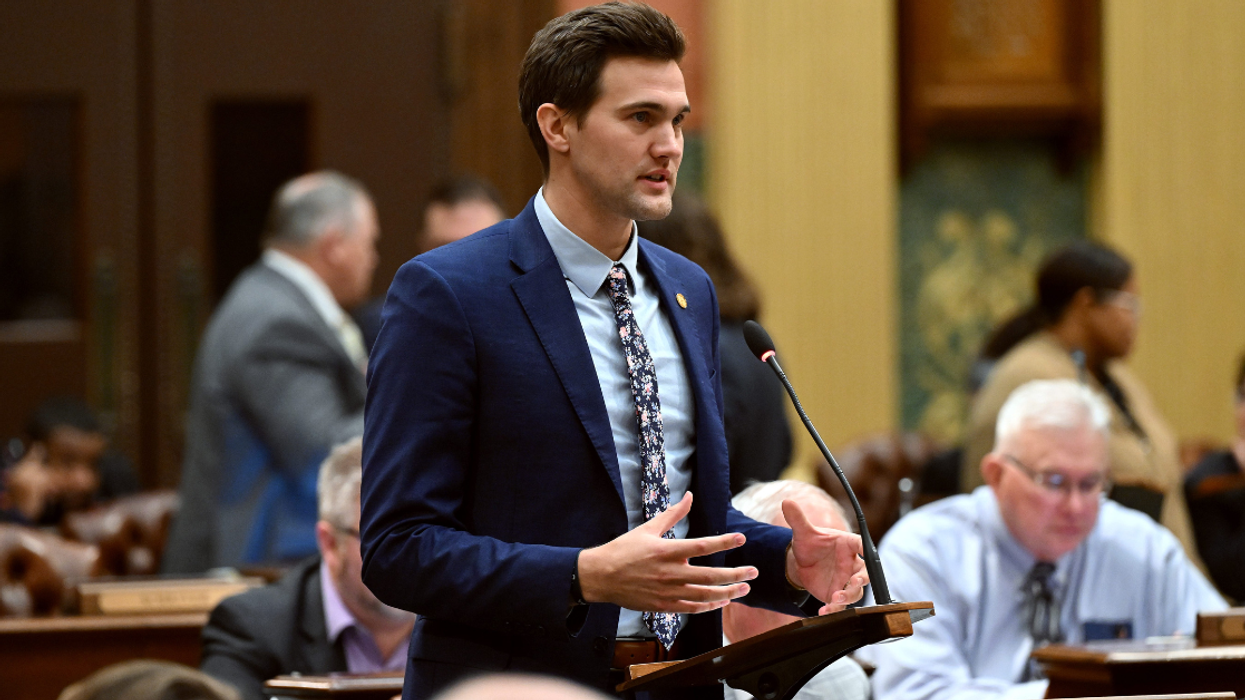Pope Francis faced scrutiny for suggesting that the "deplorable" practice of surrogate pregnancies should be banned worldwide because it poses a threat to "peace" and "human dignity."
He also said that the popular procedure in which a woman carries and delivers a child for a couple who cannot conceive naturally was "a grave violation of the dignity of the woman and the child."
The Pontiff's universal ban on surrogacy also affects members of the LGBTQ+ community who wish to start families and often rely on the controversial procedure.
At Monday's annual State of the World address to global ambassadors, the Pontiff said in his 45-minute speech:
“I deem deplorable the practice of so-called surrogate motherhood, which represents a grave violation of the dignity of the woman and the child, based on the exploitation of situations of the mother’s material needs."
“Consequently, I express my hope for an effort by the international community to prohibit this practice universally.”
You can watch part of his speech here.
Pope Francis called for a global ban on parenting via surrogacy, calling the practice "deplorable" and a grave violation of the dignity of the woman and the child. https://t.co/vp4E15tzez— (@)
Pope Francis also stated:
“The path to peace calls for respect for life, for every human life, starting with the life of the unborn child in the mother’s womb, which cannot be suppressed or turned into an object of trafficking.”
He asserted that a child was a gift and “never the basis of a commercial contract."
His condemnation of surrogacy followed his announcement last October in which he said that same-sex couples could receive blessings from Roman Catholic priests.
Social media users had some thoughts in response to his objection to surrogate pregnancies.
Pope Francis has condemned surrogacy before.
In 2022, he spoke to members of the Federation of Catholic Family Associations in Europe (FAFCE) at the Vatican and claimed that the dignity of men and women was threatened by:
"The inhumane and increasingly widespread practice of 'rented uterus' (l'utero in affitto), in which women, almost always poor, are exploited, and children are treated as commodities."
Pink News noted that criticisms leveled at surrogate pregnancies are mostly towards for-profit, or commercial, surrogacy.
Commercial surrogacy involves a monetary incentive for the woman carrying a child for another couple.
While commercial surrogacy contracts are common in the U.S., they are banned in countries like Canada, Australia, New Zealand, Brazil, and parts of Europe, including Bulgaria, France, Denmark, Britain, Germany, Italy, Spain, and Portugal.
Altruistic surrogacy does not involve payment and is legal in Australia, New Zealand, Canada, Brazil, and European countries like the UK, Denmark, and Portugal.
@NBCNews Adult women can volunteer their bodies for whatever they want. Thanks. \n\nPlenty of women that aren\xe2\x80\x99t \xe2\x80\x9cimpoverished\xe2\x80\x9d do it out of love for a friend or family member. The church and government needs to keep their noise out of women\xe2\x80\x99s private business.— (@)
The Associated Press noted that the Vatican's doctrine office has made it clear that same-sex couples who sought surrogate pregnancy may have their children baptized.








 @JohnLeFevre/X
@JohnLeFevre/X @elonmusk/X
@elonmusk/X @cmutena/X
@cmutena/X @EvRosenblum/X
@EvRosenblum/X @angerla_tomato/X
@angerla_tomato/X @DonnaLee711/X
@DonnaLee711/X @EvRosenblum/X
@EvRosenblum/X @janashortal/X
@janashortal/X @EnglerthJames/X
@EnglerthJames/X @NikiBhags/X
@NikiBhags/X @valleyb*tchh/X
@valleyb*tchh/X @JudLounsbury/X
@JudLounsbury/X @BenjaminPDixon/X
@BenjaminPDixon/X





 Oh My George Takai GIF
Oh My George Takai GIF Excited The Muppet Show GIF by Muppet Wiki
Excited The Muppet Show GIF by Muppet Wiki Bad Day Monday GIF
Bad Day Monday GIF Money Dancing GIF by Staatsloterij
Money Dancing GIF by Staatsloterij
 @realDonaldTrump/Truth Social
@realDonaldTrump/Truth Social @finalreckoning/Bluesky
@finalreckoning/Bluesky @covie_93/Threads
@covie_93/Threads @covie_93/Threads
@covie_93/Threads @covie_93/Threads
@covie_93/Threads @covie_93/Threads
@covie_93/Threads
 @morganhardman/Instagram
@morganhardman/Instagram @blacklovepage/Instagram
@blacklovepage/Instagram @naijafly/Instagram
@naijafly/Instagram @jameswalkerjresq/Instagram
@jameswalkerjresq/Instagram @usherraymondfanpage3/Instagram
@usherraymondfanpage3/Instagram @nurse.pai/Instagram
@nurse.pai/Instagram @naycoldhearted3113/Instagram
@naycoldhearted3113/Instagram @trillymill/Instagram
@trillymill/Instagram @harrisoncf34599/Instagram
@harrisoncf34599/Instagram @sanaasolutions/Instagram
@sanaasolutions/Instagram @iamyasinah/Instagram
@iamyasinah/Instagram @sowkimrising/Instagram
@sowkimrising/Instagram @sbowling88/Instagram
@sbowling88/Instagram
 @flowerpower12790/TikTok
@flowerpower12790/TikTok @flowerpower12790/TikTok
@flowerpower12790/TikTok @flowerpower12790/TikTok
@flowerpower12790/TikTok @flowerpower12790/TikTok
@flowerpower12790/TikTok @flowerpower12790/TikTok
@flowerpower12790/TikTok @flowerpower12790/TikTok
@flowerpower12790/TikTok @flowerpower12790/TikTok
@flowerpower12790/TikTok @flowerpower12790/TikTok
@flowerpower12790/TikTok @flowerpower12790/TikTok
@flowerpower12790/TikTok @cass.on.tour/TikTok
@cass.on.tour/TikTok @cass.on.tour/TikTok
@cass.on.tour/TikTok @flowerpower12790/TikTok
@flowerpower12790/TikTok @flowerpower12790/TikTok
@flowerpower12790/TikTok